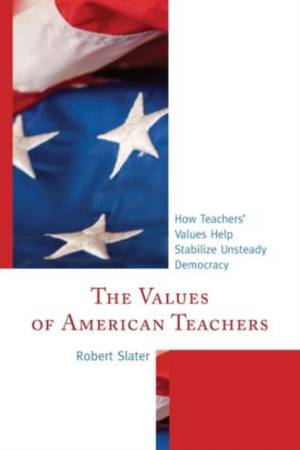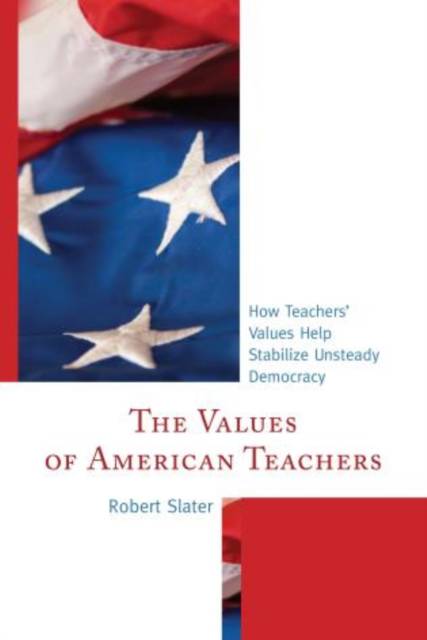
- Afhalen na 1 uur in een winkel met voorraad
- Gratis thuislevering in België vanaf € 30
- Ruim aanbod met 7 miljoen producten
- Afhalen na 1 uur in een winkel met voorraad
- Gratis thuislevering in België vanaf € 30
- Ruim aanbod met 7 miljoen producten
Zoeken
The Values of American Teachers
How Teachers' Values Help Stabilize Unsteady Democracy
Robert Slater
Paperback | Engels
€ 55,95
+ 111 punten
Uitvoering
Omschrijving
Education today is increasingly focused on tests and testing. Teachers are being judged on how much they can increase test scores from one year to the next. These year-to-year gains in scores are part of a "value-added" approach to teacher evaluation, and value-added teacher assessment is all the rage now. A main point of this book is that while teachers do add value when they enable students to increase their performance on standardized tests, this is neither the only nor the most important value they add. An analysis of 40 years of data on teachers suggests that an equally if not more important value added is their contribution to the stability of our increasingly unsteady democracy. Teachers help steady modern democracy by teaching children the limits of liberty and by cultivating the social virtues--trust, cooperation, helpfulness, and the like--upon which civil society depends. We need not only to recognize this but also to avoid education policies that undermine their willingness and ability to do so.
Specificaties
Betrokkenen
- Auteur(s):
- Uitgeverij:
Inhoud
- Aantal bladzijden:
- 138
- Taal:
- Engels
Eigenschappen
- Productcode (EAN):
- 9781475800074
- Verschijningsdatum:
- 16/10/2013
- Uitvoering:
- Paperback
- Formaat:
- Trade paperback (VS)
- Afmetingen:
- 152 mm x 226 mm
- Gewicht:
- 226 g

Alleen bij Standaard Boekhandel
+ 111 punten op je klantenkaart van Standaard Boekhandel
Beoordelingen
We publiceren alleen reviews die voldoen aan de voorwaarden voor reviews. Bekijk onze voorwaarden voor reviews.











